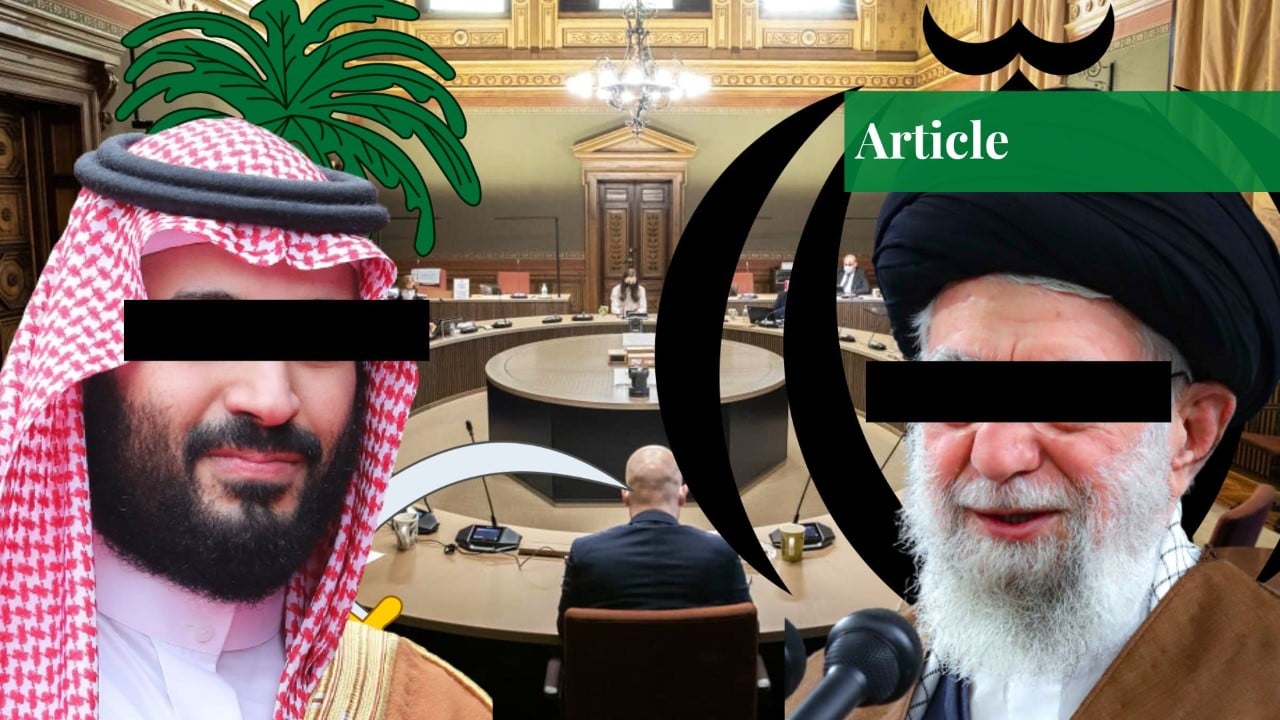Introduction
Iran and Saudi Arabia have had a strained bilateral relationship and a heated conflict for decades now. Both countries have disparate affiliations regarding religious sects, despite both being Islamic states, and have varying opinions regarding, inter alia, relations with Western Nations and oil-exporting policies.
Iran is a staunch supporter of the Shia sect of Islam while Saudi Arabia is a proponent of the Sunni sect. This has been a bone of contention for both countries as their opposing views generally cause them to be at the opposite of the spectrum. The tension between the two nations has increased and could result in an invasion or potentially a war that could include other surrounding Gulf States.
Major issues
One major issue is their support and affiliation with different Islamic sects. Iran is a predominantly Shiite theocracy with a 90% Shia Muslim population; Saudi Arabia is a predominantly Sunni monarchy with a 90% Sunni Muslim population.
Most of the Gulf countries, including Saudi Arabia, Bahrain, United Arab Emirates, Kuwait, Qatar, and Oman, who also form the Gulf Cooperation Council are Sunni Islam supporters, an organization spearheaded by Saudi Arabia. Thus it is a direct point of vexation for Iran whose primary objective is to gain hegemony in the Muslim world and influence decisions in other surrounding countries.
However, over the past several decades, tensions have gradually increased. Particularly after the Iraq invasion by the United States, the overthrow of Saddam Hussein’s government led to the installation of a Shia-inclined government in Iraq. Therefore, to Saudi Arabia’s consternation, the bilateral ties between Iran and Iraq were strengthened even further as they now had a common religious leaning.
This engendered grave concern from Saudi Arabia. It feared Iran’s imminent rise in power and global influence, which would ultimately affect the global political landscape. Another major issue that Saudi Arabia and Iran seem to be unable to concur on is the degree to which the relationship with the West should be maintained.
Saudi Arabia has strong bilateral ties with the United States, Europe, and the United Kingdom. Moreover, they all appear to share similar interests with respect to security and oil. Regional and global security is a prime priority for Saudi Arabia and the United States as it is inextricably linked with economic growth and international prosperity. Iran, however, is a pariah state that is sanctioned by most Western countries.
The Western countries have imposed these sanctions to prevent Iran from pursuing its nuclear objectives. Despite the sanctions, Iran has continued to bolster its uranium stock. According to the International Atomic Energy Agency (IAEA), as of Oct. 22, Iran has an estimated 62.3 kilograms (137.3 pounds) of uranium enriched to up to 60% fissile purity. That amounts to an increase of 6.7 kilograms since the watchdogs report in September.
This raised international concerns from the United States, Saudi Arabia, and the IAEA who are apprehensive of Iran’s intentions and conjecture that perhaps Iran is planning an attack on the Middle East’s energy infrastructure. Lastly, Iran and Saudi Arabia are unable to coincide with oil exporting policies. Both countries are members of the Oil Production and Exporting Countries (OPEC), an intergovernmental organization with 13 members.
This organization plays a principal role in determining the price of oil at any given time period. It has the ability to both increase supply to lower the cost of oil and provide relief to the masses. Likewise, it also possesses the authority to decrease or limit its oil output and increase its price. In terms of an issue between Iran and Saudi Arabia, both are unable to decide on an oil output cap to stabilize the oil prices in the market.
Iran is capping its oil output as it would hinder its ability to generate revenue, the mainstay of the Iranian economy. Similarly, Saudi Arabia dreads a greater Iranian influence if they cap its own oil supply while allowing Iran to continue its production and selling without any limitations. However, not capping the prices has raised concerns in Saudi Arabia which has lost a substantial amount of revenue due to the low oil prices.
According to RUSI, the sharp decline in prices back in 2015 caused a $98 billion budget deficit in Saudi Arabia. Therefore, compelling the Kingdom to raise that amount from another source to fill the void. Saudi Arabia has taken necessary steps to limit Iran’s oil output; it has decreased oil prices by 35 cents to European customers, directly targeting Iran’s prospective market.
This ‘Oil War’ will continue until both countries decide that mutual prosperity is far more beneficial than rivalry and unilateral interests, which seems impossible considering the skin-deep enmity between the two.
Current Conflict between Saudi Arabia & Iran
Iran is currently enveloped in chaos and unrest. The death of 22-year-old Masah Amini was the initial contingency that engendered remonstrations across Iran with females demanding their basic liberties including the repeal of the stringent dress codes for women. Moreover, they covet the overthrow of Ali Khamenei’s government. Unfortunately, that is a quixotic desire as Khamenei has ruled as an authoritarian head of the country for over 30 years now.
The riots are becoming increasingly violent as law enforcement agencies attempt to quell the disturbance. Consequently, Iran contends that Saudi Arabia is the main perpetrator behind the growing turbulent situation in the country. According to Wall Street Journal, Iran’s intelligence minister apprised Saudi Arabia that its strategic patience would run out if it continues to foment violence through media and proxies in Iran.
Saudi Arabia has vehemently denied interference in the country’s societal landscape. Moreover, on November 10, 2022, Saudi Arabia shared intelligence information with the United States that included details of the imminent attacks that Iran has conspired to execute in the upcoming weeks. Additionally, on November 11, 2022, the United States flew two B-52 bombers over the Middle East as a warning to Iran indicating their strength and force in case Iran finalizes its plans to ultimately attack Saudi Arabia’s energy infrastructure.
Conclusion
In conclusion, the Saudi Arabia-Iran conflict is convoluted and replete with animosity. The actions that one will take in retaliation to the other’s motives are difficult to assess and prognosticate. They have had disagreements over several major issues ranging from religious sects to relations with the West. This has led them to align themselves accordingly, typically against each other.
However, as the current situation in Iran worsens, the threats toward Saudi Arabia have increased. The final result could be a full-fledged invasion or attack if bilateral talks with international mediation are not conducted to resolve the prevailing issues.
If you want to submit your articles and/or research papers, please check the Submissions page.
The views and opinions expressed in this article/paper are the author’s own and do not necessarily reflect the editorial position of Paradigm Shift.















